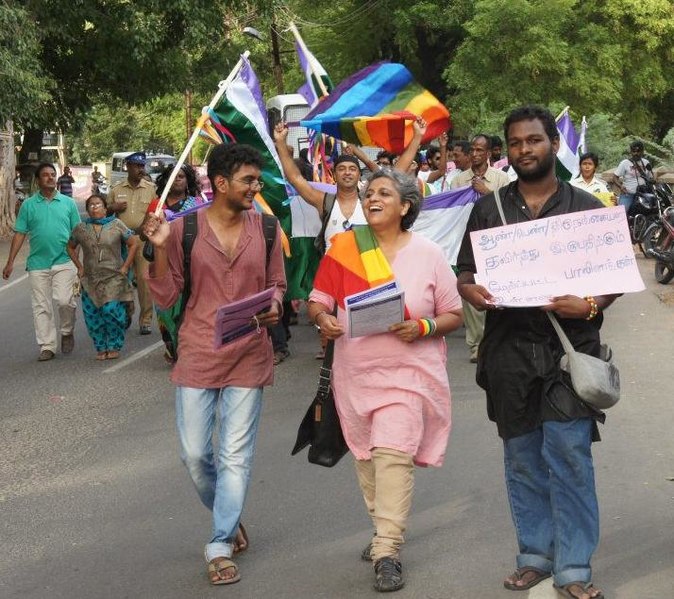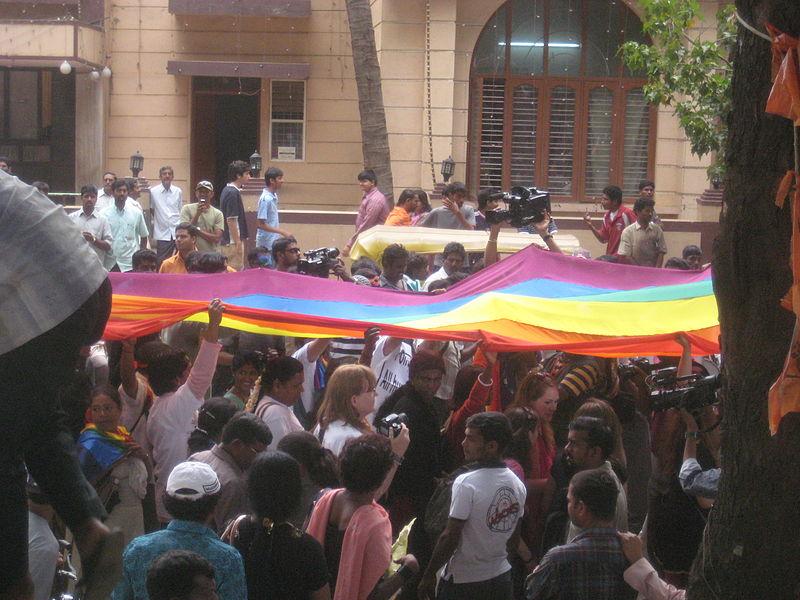India legalizes gay sex in a unanimous ruling
India celebrates LGBT Pride.
September 13, 2018
Sept. 6, 2018: Confetti and cheer erupts through the streets of India as the Supreme Court reverses section 377, which outlawed gay sex.
For years, LGBT activists in India have worked to reverse the law, which put a 10 year jail sentence on certain sexual acts, which highly impacted same-sex relationships. The battle against the portion of the law that condemned consensual homosexual acts between adults began in 2001, was repealed once in 2009, but put back into effect in 2013 until India’s five-judge bench unanimously voted to overrule the law. Section 377 was originally introduced in 1861 by the British during their colonization of India, beginning a centuries-long battle for LGBT rights.
“Criminalising carnal intercourse is irrational, arbitrary and manifestly unconstitutional,” said chief justice Dipak Misra.
The idea of ‘unnatural’ sex was spread throughout the world during European colonization. Though relationships between men and women were the norm prior to the spread of European laws and ideas, same-sex relationships were regarded as dismissable, or even acceptable. India’s mythology depicts a history of same-sex relationships, stories of men turning into women or women turning into men and other beings who are fluid in gender. The story of India overturning section 377 is as much a story in the continuing defeat of the effects that colonization left on India as it is a story of overcoming intolerance.

Photo by Athlour
“History owes an apology to members of the community for the delay in ensuring their rights,” said Justice Indu Malhotra.
However, not all of India is happy about these proceedings.
“We are giving credibility and legitimacy to mentally sick people,” said Swami Chakrapani, president of All India Hindu Mahasabha, a conservative group, according to the New York Times.
Many conservative leaning Christians, Hindus and Muslims in India believe the ruling is shameful and are now fighting to reenact the law, as opposed to political leaders, who have stayed mostly quiet on the issue. For now, India’s LGBT community is just celebrating the win, though they acknowledge that there will always be more wars to fight.
“I think we would be foolish to think that this is the end of the fight,” said author and commentator Sandip Roy, according to BBC.










Oliver • Sep 17, 2018 at 2:24 pm
This is a good article. I love you, father.
Oliver • Sep 17, 2018 at 2:24 pm
This is a good article. I love you, father.